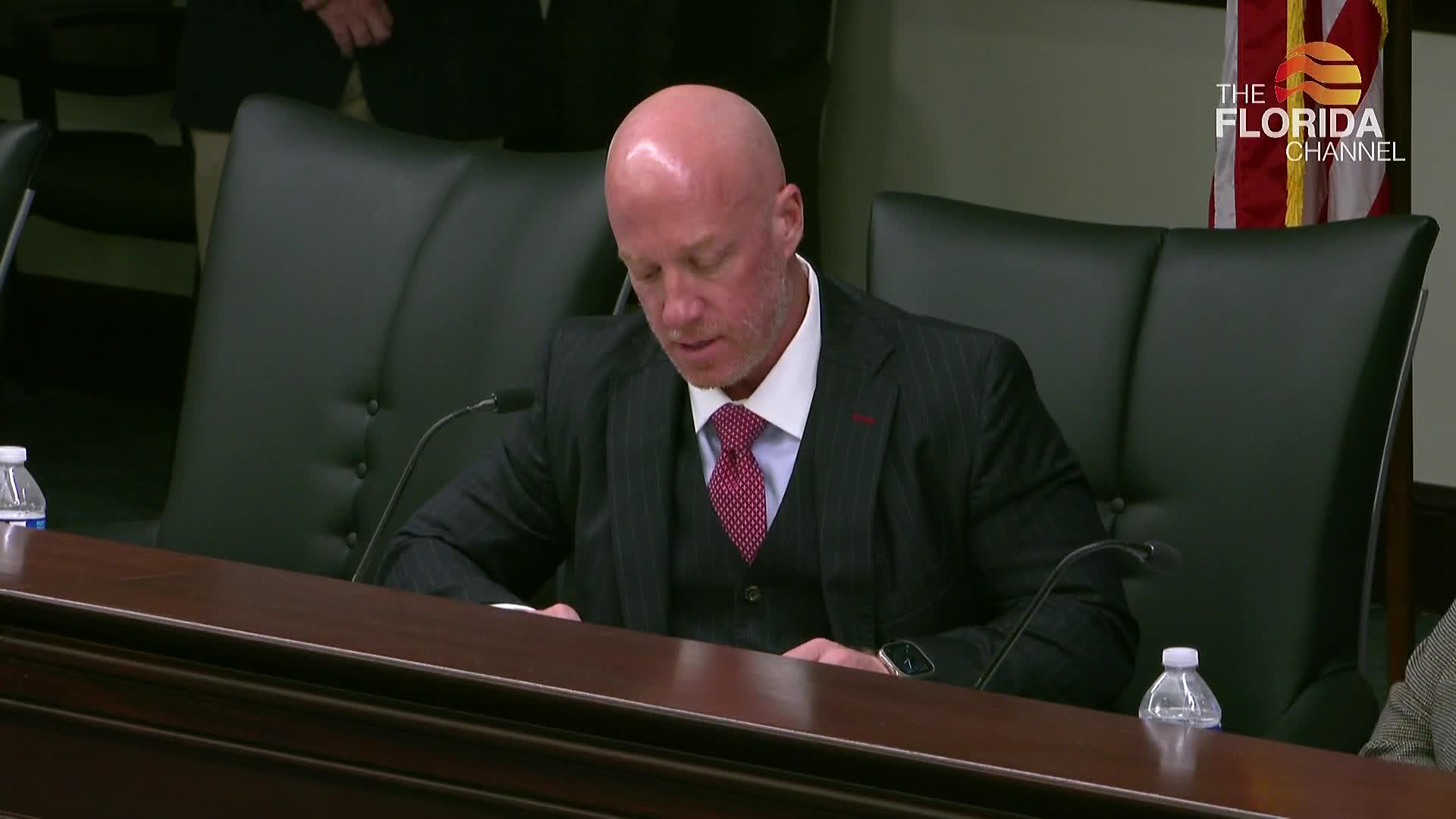Panel sends flag‑display ban to committee calendar after heated testimony over classroom displays and "reasonable force" provision
Get AI-powered insights, summaries, and transcripts
Subscribe
Summary
Senator Randy Fine, sponsor of Senate Bill 100, told the committee the bill would bar governmental entities from flying partisan or political flags or depictions and would permit current or former service members to use "reasonable force" to stop flag desecration.
Senator Randy Fine, sponsor of Senate Bill 100, told the Committee on Governmental Oversight and Accountability the bill would bar governmental entities from flying partisan or political flags and would allow active service members or veterans to use "reasonable force" to stop someone desecrating a flag. "The idea here is that the government should not be in the political message business," Senator Fine said, adding that the bill treats depictions of flags the same as flags themselves.
The committee hearing that followed featured more than a dozen public speakers and extended debate among senators. Opponents — including students, civil‑rights groups and civil liberties advocates — described the bill as vague, constitutionally risky and a distraction from other state priorities. Avery Cole, a sophomore at Booker High School in Sarasota, testified: "flags make me feel seen and heard." Casanova Dougherty, a 17‑year‑old transgender man, said flag displays had helped prevent suicide and urged a no vote. The ACLU of Florida and Equality Florida both urged rejection, citing First Amendment concerns and multiple federal court rulings on government speech and flag displays.
Supporters — including a representative of Moms for Liberty and a speaker from Florida Citizens Alliance — said political messaging should not appear on taxpayer‑funded buildings and schools. During committee debate, senators questioned how the bill would define a "flag" or "political viewpoint," who would make enforcement decisions at local levels, and what the undefined "reasonable force" allowance would permit. Senator Fine acknowledged the bill does not define reasonable force and said enforcement would generally fall to the government entity (for example, a school district) responsible for the building.
Several senators and public witnesses noted legal risk and potential litigation costs if the state moves to ban certain displays. Opponents highlighted that the bill explicitly lists sexual orientation and gender identity as political viewpoints, a point repeated by sponsors and debated by witnesses who said identity is not inherently political. Senator Polsky and others asked whether private individuals would be affected; Fine pointed to language within the bill (lines 35–37 as read in committee) preserving private individuals' First Amendment rights when acting outside official duties.
Following public testimony and debate, the committee voted to report SB 100 favorably. The roll call recorded Senators Broder, McLean, Rodriguez, Fine and Chair DeSigley voting yes; Senators Arrington and Polsky recorded no votes. The committee report was adopted with that tally and the bill was sent forward for further consideration.
